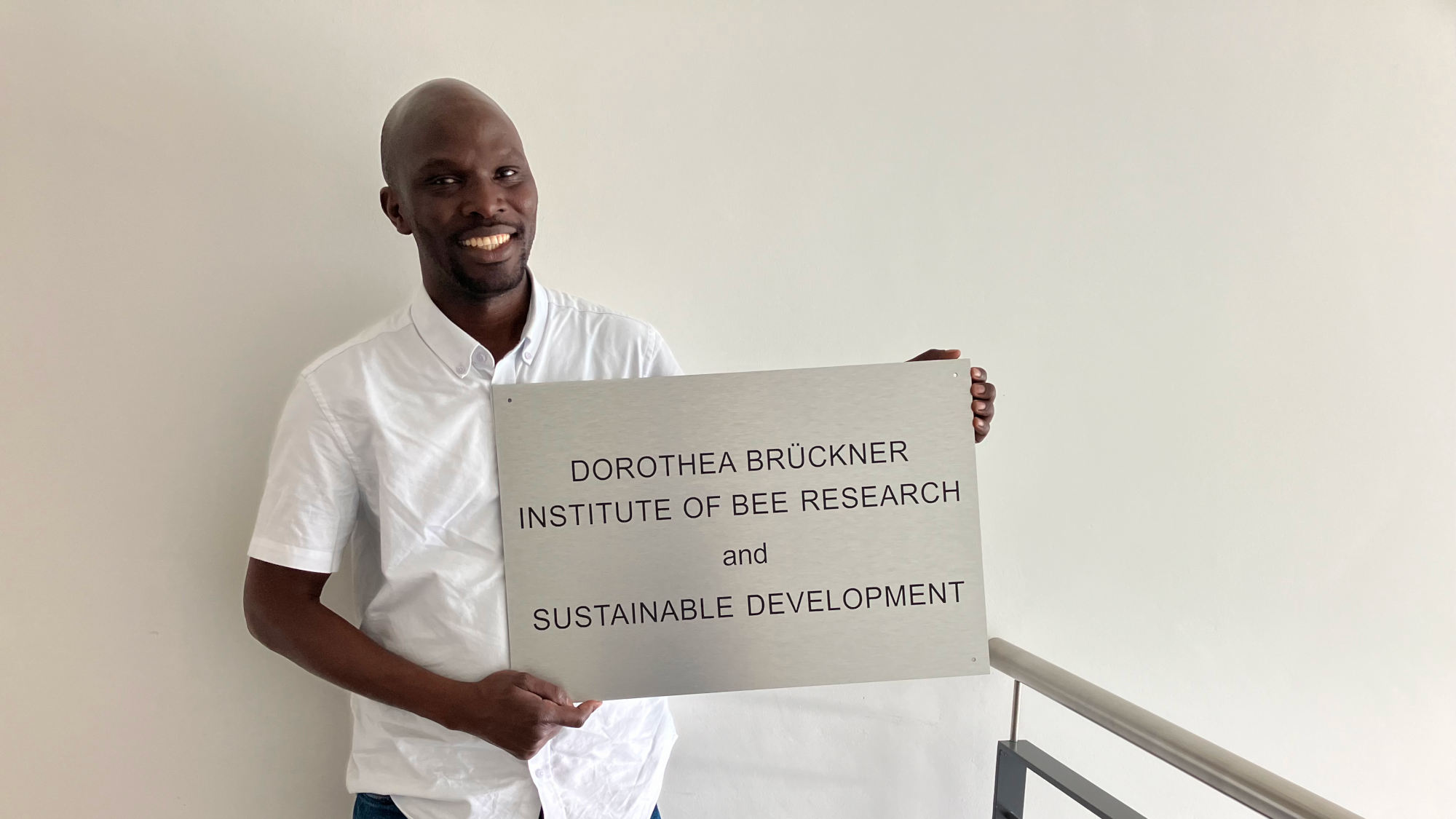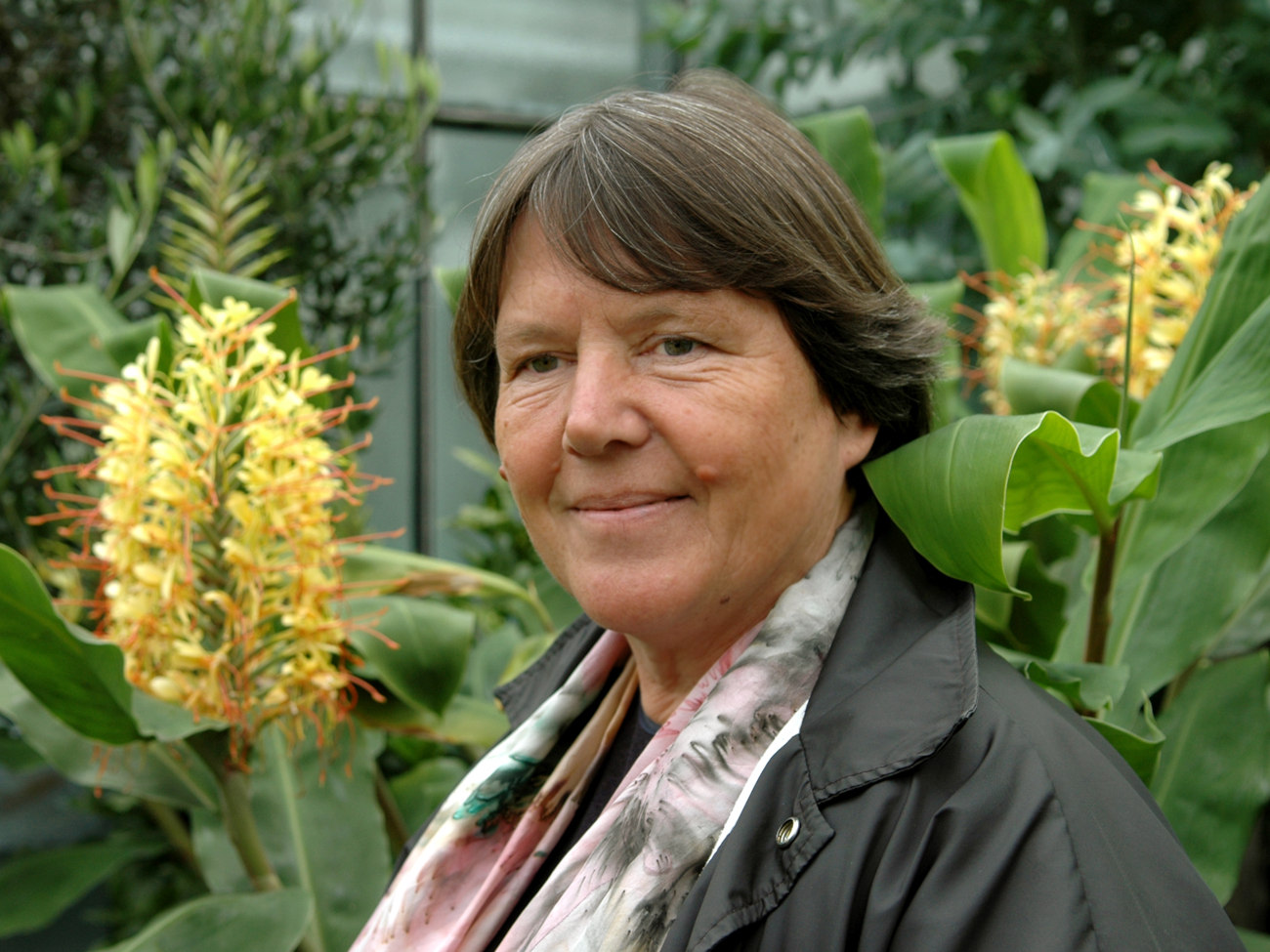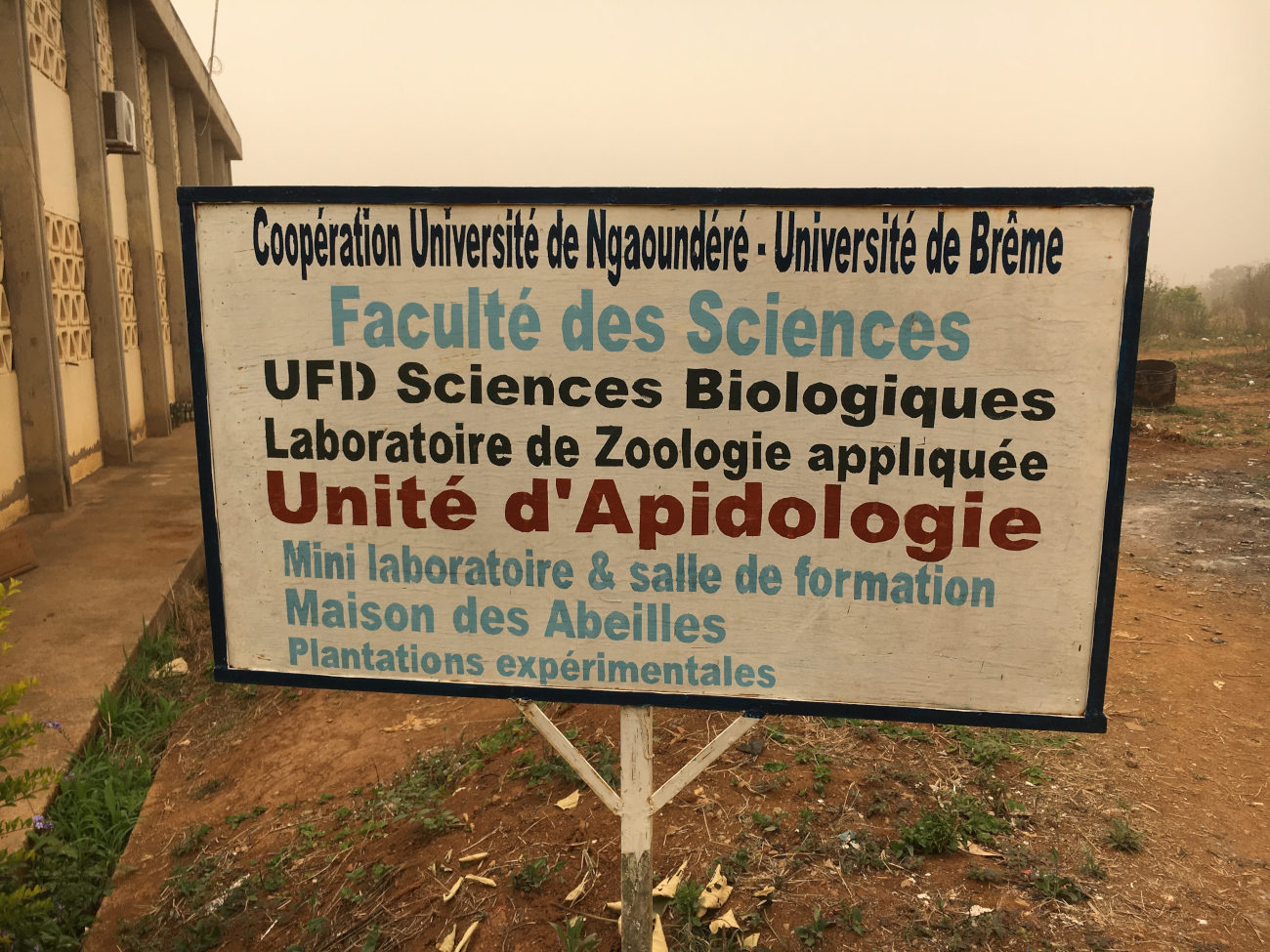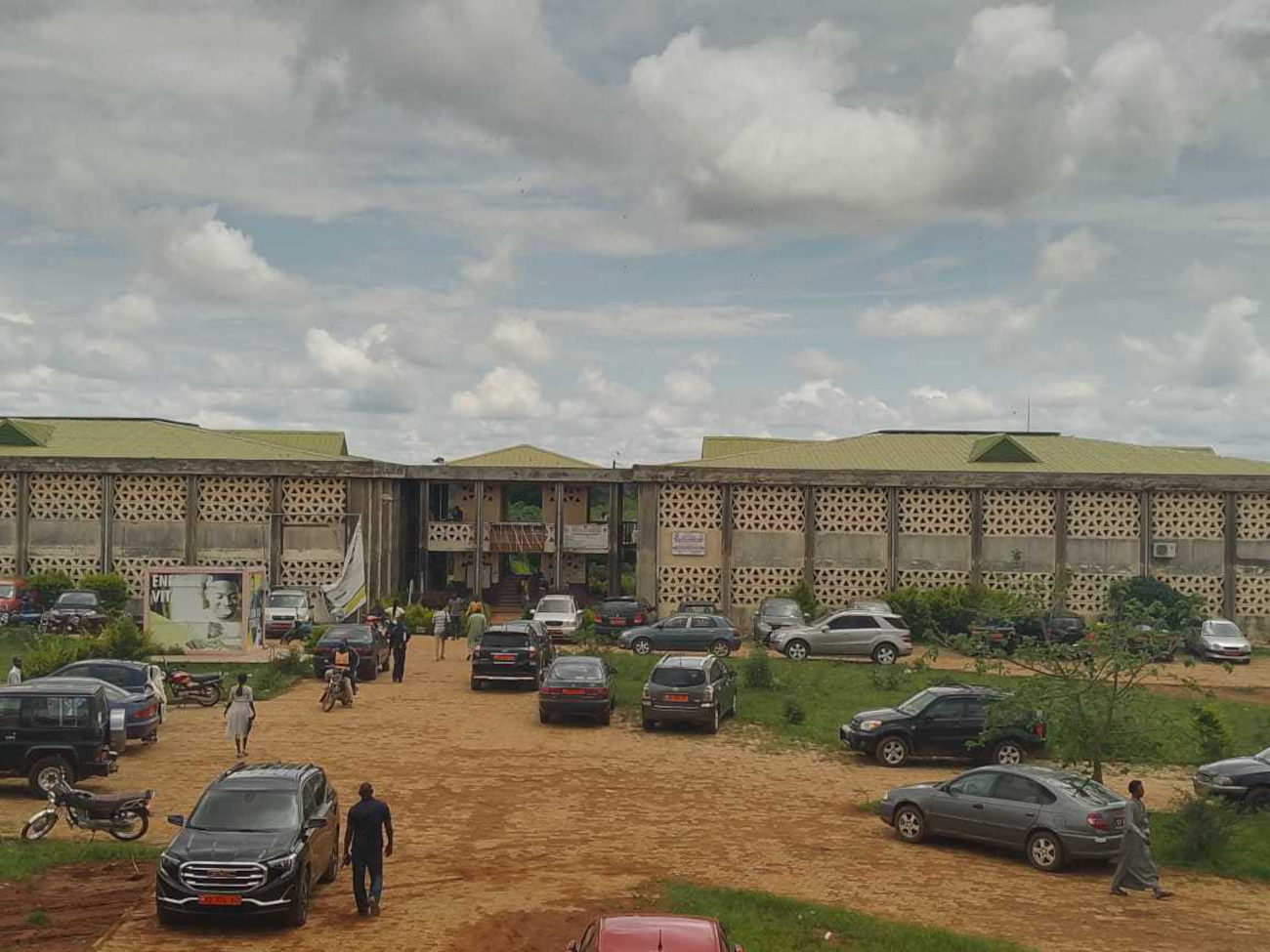
© University of Ngaoundéré
The New Dorothea Brückner Institute in Cameroon
Special honor for the bee expert from the University of Bremen: Her research is highly valued at the University of Ngaoundéré in Cameroon
When Dorothea Brückner heard the news from Professor Mazi Sanda from the University of Ngaoundéré, she could hardly believe it – but of course, she was delighted. Her former PhD student has named his new research institute in Cameroon after her. Mazi Sanda wanted to thank Dorothea Brückner for her profound training in bee research, as well as for the invaluable contacts she helped him forge within the European bee expert community.
To understand how this honorable naming came about, one needs to know about the history of bee research at the University of Bremen – and later at the University of Ngaoundéré – as well as the collaboration between the two universities. The biologist Dorothea Brückner has been working for the University of Bremen’s Faculty of Biology/Chemistry since 1984; she founded the Bee Research Center here in 1988.
Looking back, she was way ahead of her time with her field of research, which was still considered a fringe subject at the time. At the time, the topic was sometimes ridiculed, but over time, people’s awareness of the importance of insects in general, and bees in particular, changed enormously: “Today we know much better that bees of all kinds are extremely important for nature and that they are endangered by climate change,” Dorothea Brückner states.

© Harald Rehling / Universität Bremen
Bees’ “Service” Is Worth Several Billion Euros
Today, bees and insects attract a much higher level of attention than they did 20 or 30 years ago. They are economically enormously important because they are pollinators for many types of fruit and vegetables. It is estimated that the “bees’ service” is worth several billion euros worldwide. In an agricultural environment that is increasingly characterized by monocultures, they are also important for biodiversity. “Our research has come under the spotlight – not just in Germany and Europe, but also in Africa,” reports Dorothea Brückner.
And this is largely due to her. After all, the University of Bremen has been working closely with the University of Ngaoundéré, a university for agriculture and technology with around 7,000 students in the Cameroonian region of Adamaoua, for more than 20 years. This collaboration takes place not only in the field of biology, but also in computer science. “Fernand Nestor Tchuenguem Fohouo was my first doctoral student from Cameroon in 1999,” the bee researcher from Bremen recalls. “He later became a professor in the Biology Department of the University of Ngaoundéré and was Mazi Sanda’s African PhD supervisor.”

© University of Ngaoundéré
Mazi Sanda also became a professor of biology at the Cameroonian university, and came to the University of Bremen with the help of a DAAD scholarship along the way. It was here that he first developed an interest in bee research. Wild bees play a major role in Cameroon’s economy. For example, shepherds collect their honey to sell it within the country and in neighboring countries. “Mazi Sanda got to know the international bee research community at conferences during his time in Bremen – contacts from which he still benefits today.”
Mazi Sanda Wants to Extend Bee Research All over Africa
Inspired by the intense bee research of his PhD supervisor earlier in Germany and Europe, Sanda now wants to establish the same at “his” new institute in the city of 230,000 inhabitants. Moreover, the biology professor also wants to strengthen bee research in other African countries and establish a specialist network on the African continent. This process is to begin with an international conference to be held at the Cameroonian university in September 2024 – the first major event of the new “Dorothea Brückner Institute of Bee Research and Sustainable Development” in Ngaoundéré.

© University of Ngaoundéré
Dorothea Brückner is still active in bee research today. After her time working at Faculty 2, she is now a visiting researcher in Professor Kerstin Schill’s Cognitive Neuroinformatics research group at the Faculty of Mathematics/Computer Science. In the “Bee Observer” project at the University of Bremen, the researchers wired up the homes of bee colonies and now monitor them with sensors. Their goal is to use modern technologies to collect up-to-date information about the bees without having to open the hives and in this way help to preserve their population.